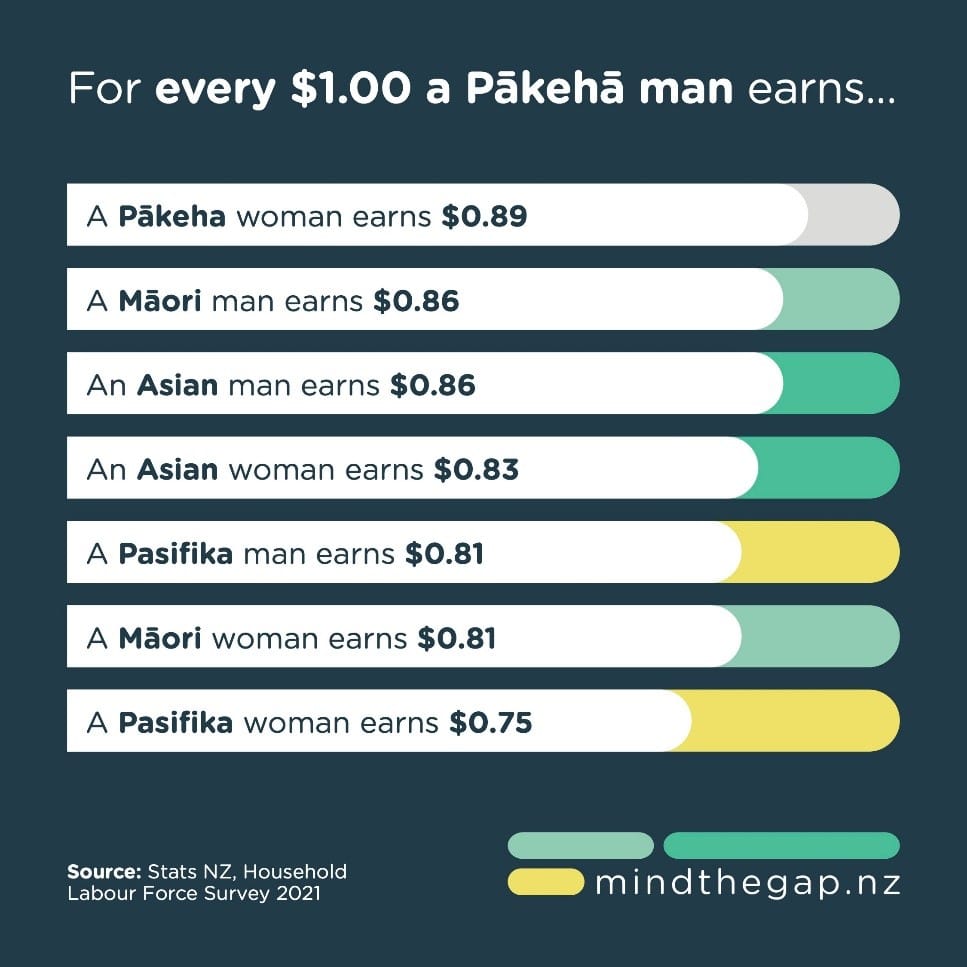By now, we’re all aware of the inequity between genders in the workplace. We know all about the gender pay gap, which sees a Pākeha woman earn $0.89 to every $1.00 earned by a Pākeha man, and we’re well informed of the Power Gap identified in Property Council’s 2021 research into Diversity in the New Zealand property sector, with only 20% of Key Management Personnel positions held by women.
We get it – there’s work to do when it comes to creating a property and business sector where people of all genders feel like they belong. And this work can’t be done by women alone, men play a crucial role in helping champion gender equality.
So, how can you make a difference?
Breaking stereotypes
We are fortunate at Property Council to have a National Board and Industry Leaders Group which, although mostly composed of men, are passionately committed to enhancing diversity and inclusion in the property industry. These leaders actively shaped our current Strategy, which continues to prioritise diversity and inclusion, which they see as a topic that will improve the entire sector. #malechampion
An excellent example of a male champion comes from our chief executive, Leonie Freeman, who credits much of her early career growth to the support and mentorship of one of her first employers, real estate legend Peter Cook. By supporting, mentoring, and advocating for talented female colleagues, men can become powerful advocates for their success and the success of those who follow.
Amplify women’s voices
Women remain underrepresented in many workplaces and are often paid less than their male counterparts. One contributing factor is that their contributions and ideas are frequently overlooked or incorrectly attributed to male colleagues.
Men can help rectify this by highlighting the valuable ideas of their female co-workers, acknowledging them in front of senior leadership, and correcting any misattribution. As illustrated by President Barack Obama’s team, the “amplification” strategy can ensure that women’s voices are heard and credited appropriately, fostering a more equitable work environment.
Banish the banter
The line between office banter and sexism can be thin, making it challenging to know when to intervene or speak up. However, it’s essential to recognise that workplace norms evolve with society, making what once might have been seen as socially acceptable now completely inappropriate.
Men who address harassing or derogatory behaviour send a powerful message that sexist language and actions will not be tolerated. Remember, the behaviour you ignore is the behaviour you condone.
Show up
Initiatives focusing on diversity, equity, and inclusion often face resistance, with discussions around these topics sometimes deterring men from the conversation. When we look around the room at Women in Property or Diversity and Inclusion events, we are lucky to see one man in the audience. This proves two points: firstly, men can be uncomfortable being the ‘lone man’ in the room and secondly, diversity is often seen as a ‘women’s problem’.
For whatever reason, men often don’t see the crucial role they have to play in improving equity across the sexes.
Gents, I encourage you to embrace discomfort, as it’s an opportunity to gain insight into the experiences of women in male-dominated environments.
Become an inclusive networker
Research suggests that women often build less effective networks than men, which can be attributed to structural exclusion from influential networks. Men can help bridge this gap by proactively considering who is invited to events and diversifying their networks. Encourage conversations with people who may not look like you, create inclusive group dynamics, and explore alternative networking opportunities beyond traditional after-work gatherings.
Property Council actively encourages its members to consider who is being offered the opportunity to attend our events. Look back on your recent list of attendees, are they mostly blokes? Maybe it’s time to change that.
Step up at home
I read a quote recently that resonated with me:
There is an entire generation of women who are drowning because they were raised with traditional gender roles while being empowered to be independent. These women still take on the majority of household duties while simultaneously killing it in the workplace…”
Traditional gender roles persist in many households, where women often bear the brunt of household duties while also excelling in their careers. This imbalance can hinder women’s professional advancement.
Men can contribute by sharing household responsibilities equally and breaking free from outdated gender norms. Evaluate your role in household chores and caregiving, striving for a fair distribution of tasks. Heck, you could even get your project manager hat on and divide up the household chores completely evenly – up to you!
Be transparent about your pay gap
Even though New Zealand introduced the Equal Pay Act nearly 50 years ago, there remains a startling difference between the income of males and females, particularly once ethnicity is considered.

The team at MindTheGap believe that to close our pay gaps, pay gap reporting is required here in Aotearoa just as it is in Australia, the UK and many other countries.
International evidence shows that when we know what the pay gaps are, we can get to work on closing them. As well as working with business leaders on voluntary reporting, they are also asking the Government to introduce pay gap reporting to end discrimination that impacts on the nation’s wellbeing.
Change starts with you
Change begins with individual actions. As Margaret Mead aptly put it:
Never doubt that a small group of thoughtful, committed citizens can change the world; indeed, it's the only thing that ever has."
Achieving gender equality may not happen overnight, or even in our lifetime, but it’s a goal that benefits everyone.
You might be already well practiced at supporting the women in your life (yay!), or you might be reading this thinking, “there is probably more I could do”, and if so, start now. Whether you want to dip your toes in a Women in Property event, offer to take on the cooking duties for half the week or reconsider who’s representing you at industry events (whether as a speaker or attendee) – every action is a step toward equality.
If we work together, we can create a more inclusive industry, leaving a legacy for not just the property sector but also our daughters and granddaughters.
Author | Kelly Taylor
Head of Communications
Property Council New Zealand
Originally joining Property Council as South Island Branch Manager, Kelly returned in a communications role in 2017 and was then promoted to Head of Communications. Fast forward a couple of years and not much has changed – here she is, telling people’s stories – specifically, the story of New Zealand’s largest industry, property.
Ruthlessly efficient, Kelly has a natural inclination for strategic planning and a gift for project management, attributes that have served her well in her current leadership role. She takes the complex and makes it simple, opens doors for member engagement and positions us as approachable, credible and influential.
Based in Christchurch, Kelly loves telling our members’ stories and has relished the opportunity to wordsmith Property Council’s purpose, redefine our brand and take our communications to new heights.


